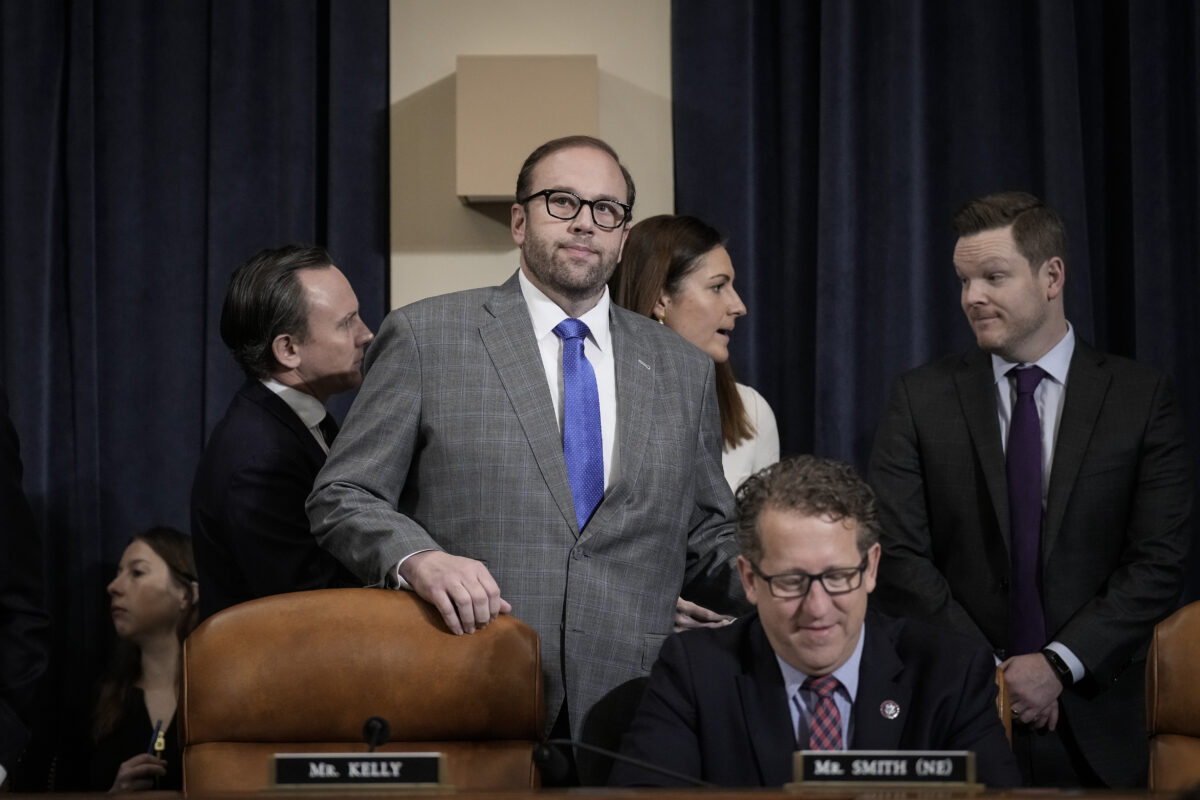


The cost of doing business in Georgia has risen exponentially as the effects of rising inflation, higher taxes, and increasing interest rates impact operations, the House Ways and Means Committee heard during a field hearing in Peachtree.
“Historic inflation, higher interest rates, and help wanted signs have come to define life and America for millions of people and businesses,” said Chairman Jason Smith (R-Mo.) in his opening remarks.
Smith noted that small companies, which employ about 43 percent of the state’s workers, are “battling on the frontlines of the Biden economy for the past two years” and have felt like Washington has forgotten about their daily issues. With a proposed $4.7 trillion in new taxes, families, small businesses, and farmers “who build feed, fuel, and power our nation” are not being prioritized by Congress.
The roughly 1.2 million small businesses are just some of the ones struggling in this environment, he explained. In addition, working-class households have lost an estimated $10,000 because of higher prices, while inflation-adjusted wages have been negative for 24 straight months.
Georgia’s trucking industry, a sizable contributor to the state economy, has battled rising fuel prices. A gallon of gasoline is up more than 50 percent since January 2021, climbing to an average price of $3.38, American Automobile Association (AAA) numbers show. Diesel has also surged, topping $4.10 a gallon.
Local restaurants have contended with surging food prices and a need for more labor, weighing on the typical mom-and-pop businesses’ already thin margins and high operating costs.
Matt Livingston, the owner of Coach’s Bar and Grill, testified before the committee that his food costs have surged to as high as 40 percent, forcing his restaurant to routinely “change our menu prices just to keep our head above water.” This difficulty is coupled with the industrywide problem of staff shortages, admitting that people do not show up to work or arrive late. As a result, turnover rates are high, training new employees is expensive, and staff quit because “they can make more staying at home.”
“There’s no concept of an honest day’s work for an honest day’s pay,” he said.
In March, WalletHub data show that Georgia ranks second in the country where employers are struggling to hire, right behind Alaska and ahead of West Virginia. Still, according to the Bureau of Labor Statistics, employment levels climbed nearly 3 percent year-over-year last month, adding more than 133,000 jobs since March 2022.
Lending costs are another crucial issue as they have spiked for businesses and consumers, says Lisa Winton, the CEO of Winton Machine Company.
According to Winton, her business has attempted to expand its facility size, but “the cost of doing so has risen fourfold over the last several years.”
In the last year, the Federal Reserve has increased interest rates to their highest level since the global financial crisis 15 years ago as the central bank tries to reduce the target inflation rate to 2 percent. In addition, the banking turmoil last month has led to tighter lending conditions.
Both developments have made borrowing more expensive and credit access more challenging for many industries.
The Atlanta Fed Bank noted in the central bank’s monthly Beige Book that manufacturers in the Peach State have “reported significant slowing activity.”
But it is not only interest rates affecting Winton’s operations. The tax code and upcoming changes could hurt her company, citing various adjustments that would make it “harder to do business in America.” A couple of these adjustments include changing the maximum deduction for interest on business loans and phasing out the full expense of capital investment of bonus depreciation.
“Both of these changes are like attacks on manufacturing growth,” Winton told lawmakers. “That’s because manufacturing requires hard work, skilled workforce creativity, and machinery. I am very concerned that these changes will force our customers to keep using older pieces of equipment rather than purchasing newer or additional ones, or they will buy cheaper equipment from Asia or move more production offshore.”
Rachel Shanklin, the Georgia director and National Women’s Entrepreneurship director for Small Business Majority, urged the federal government to build upon many of the programs and benefits created in the CARES Act, the American Rescue Plan, and the Inflation Reduction Act. She listed the extension of the premium subsidies in the Affordable Care Act through 2025 as one example of the government helping entrepreneurs, small business employees, and Georgia’s economy.
“Small businesses need a modernized and robust benefits infrastructure that promotes wealth creation, financial security, and quality jobs,” Shanklin said. “These policies are clear examples of programs that are essential to supporting small businesses and helping them compete with larger businesses. We encourage policymakers to consider policies that will empower entrepreneurs to build a thriving and equitable economy.”
Despite the myriad of challenges facing the small business community, Gov. Brian Kemp recently touted the state’s economy in a speech to the Cobb Chamber of Commerce, citing its AAA credit rating, $6 billion budget surplus, and close to $2 billion in household tax rebates and relief.
“Just like the [Atlanta] Braves, Georgia’s economy continues to win as well,” the governor said.

